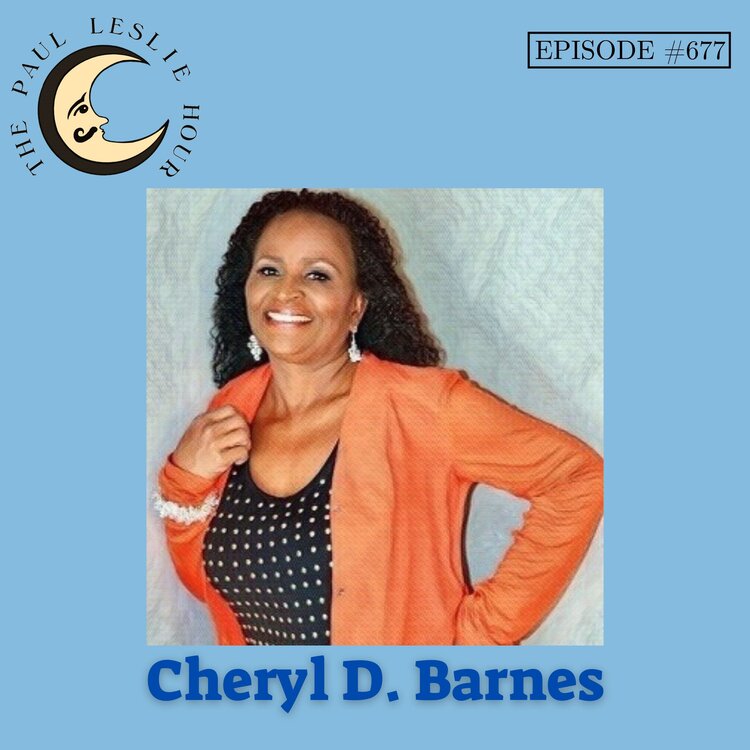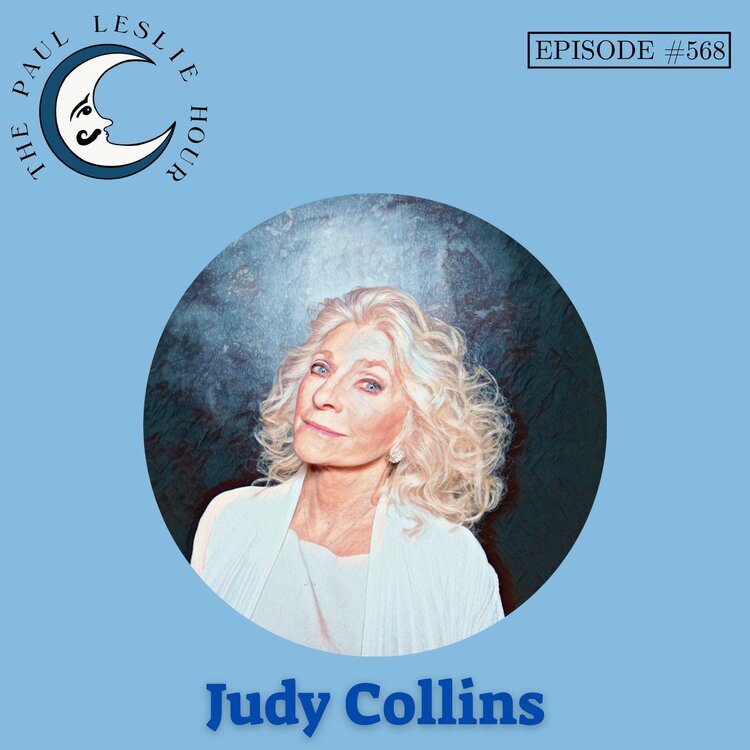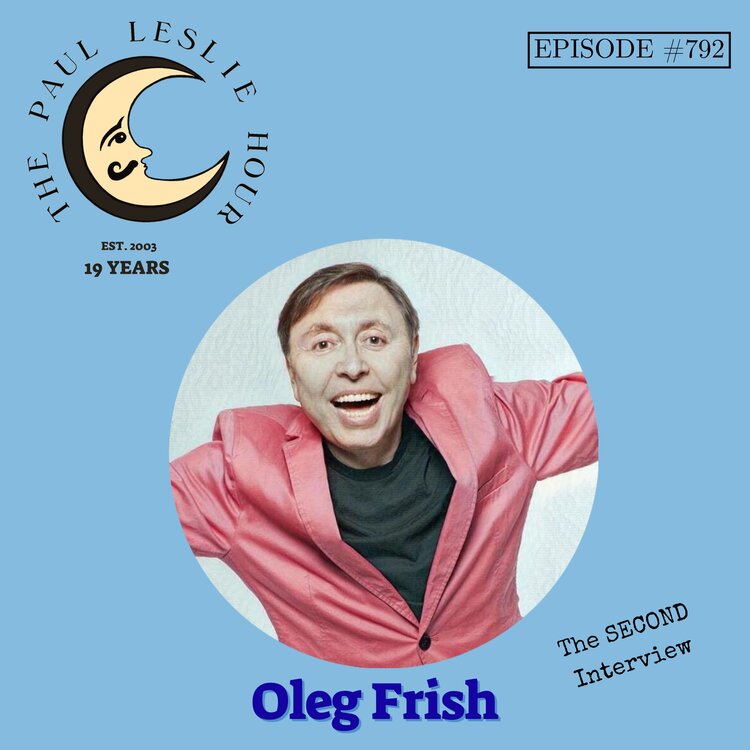The Cheryl D. Barnes Interview is featured on The Paul Leslie Hour.
Jazz singer Cheryl D. Barnes sat down to talk with Paul about her album “Listen to This.” Cheryl D. Barnes grew up singing, hearing the likes of Duke Ellington, Ella Fitzgerald and Nat King Cole. She started with classical voice training at age nine before turning her attention to jazz.
Her other releases are also worth checking out. Cheryl D. Barnes released a debut studio album entitled “Cheryl,” and she also released a live album with the Phillip Cabasso Orchestra entitled “Live at the Baked Potato.”
If you have a moment, please help keep this show going. Just go here. You’ll know what to do. Thanks to everyone who is contributing.
Let’s get into the show, baby!
Help Support the Show Here.
Subscribe/stream on the following platforms:
• Rumble • RadioPublic • Stitcher • iTunes • Spotify • Player FM •
• Overcast • iHEARTRadio • CastBox • Acast • Deezer
Consider sharing this interview on Social Media.
The Official Transcript
Ladies and gentlemen, it’s a great pleasure we introduce you to this woman, Cheryl Barnes. Thank you for joining us.
Well, thank you for inviting me.
I think most stories are best from the beginning. What was life like growing up?
My musical life – my whole life was wonderful – and my musical life was really pretty fantastic because I was always surrounded by every kind of music that was playing on the radio and on records and everything. My father and mother exposed us to jazz, to classical, to polka music, to rock and roll – sort of. My father sort of forbade that in our house but we managed to listen to it anyway. So the musical life, it started from day one. Even at the smallest age, I remember waking up in the middle of the night and hearing beautiful music, tunes playing on the radio and it was like breathing and all, so it was great. And as I was in elementary school, coming along, starting to sing in little groups and that sort of thing, so it was a good start. A good launching into a life of music.
Who were the singers that you enjoyed the absolute most?
Well, of course, the you know all the traditional, wonderful greats. Um, of course, there’s Ella Fitzgerald and Sarah Vaughn and Peggy Lee and just, you know, all the greats of that time. And then, coming forward, I’ve always – I have been influenced, mostly spiritually and emotionally, by a wonderful singer named Carmen Lundy because of her innovation and her beautiful talent, and the freedom that she shared in her music in the way that she – she’s a wonderful instrumentalist as well – in the way that she plays and sings. And a lot of the newer young people that singing now I’ve really been enjoying as well. And I’ve been influenced greatly by many instrumentalist, especially during the years that I was starting to sing jazz. You know, like Herbie Hancock and Freddie Hubbard, and a lot of horn players of the time and other players. It’s just, uh, it was like taking in, like breathing and taking in from the atmosphere all these great musical influences from many areas. And classical music as well, not just in jazz. I started out as a rock and roll singer (laughs) in fact, in Great Falls, Montana, so I enjoyed that part of it, too.
You have had the opportunity to work with a lot of great artists. Can you tell me who you have been the most in awe of?
Among those that I had the pleasure of working with and relating to in conversation and all, Della Reese was – I had a television show along with a gentleman named Bobby Jackson invited me to co-host a TV show with him in Denver. And we used to feature the visiting wonderful artists who came through town performing at the various clubs. And anyway, Della Reese was on one of those shows. And I also sang as the opening act at the club so we had an opportunity to know each other. And I learned so much from her as a performer and as a singer, but also as an entertainer. She influenced me tremendously in that way. And she was very generous. That stayed with me, and has stayed with me through my life and my career. And then there were other people that I worked with. I met Linda Hopkins and have gotten to know her somewhat. And she’s an incredible human being and she’s still going strong. And she just has such a legacy to share, such a history of her life, and a wonderful story of her life. And it certainly influenced me just to be the true – savor everything because then that sort of – not ‘sort of’, it does influence me. It helps me to just be open in my music and free to share. You know, just to go to the depths and throw it out there on the table – this is it! And there have been some wonderful artists who influenced me in that way and have been very helpful to me.
Tell us about the making of this latest album, Listen to This. What made you want to create this album?
Well, this came from – I hadn’t recorded in a number of years, and it came from a desire to make, you know, just make a record of my work as I am now in these last few years, because it took us five years to finish this project. I wanted to – I told my husband, I said – who is a keyboardist and pianist, he’s also a physician, a medical doctor – and I told Phil, I said ‘You know, I really would like to make a CD.’ I really didn’t have any particular idea about what would happen with it afterward or anything but I just wanted to record this. And what started as ‘Oh, OK. Well, that’ll be great. Let’s do that. We’ll get our wonderful musician friends …’ I live in L.A. so I have a wealth of the greatest musicians, some of the greats from all over the world who are our friends and musical associates, you know, who are willing and happy to participate. And we started out with ‘Well, we’ll just pick some nice tunes and go from there.’ And this thing evolved because the gentleman that we hired to produce the CD is a gentleman named Rahn Coleman. And Rahn is just – his vision, he loves my voice and he came up with ideas about how, where we could – a direction to go in to be as authentic as possible. For me to be as authentic, artistically, as possible and to – I use the word ‘free’ because that’s how I feel about my singing for myself – and so that it developed, it started out as a desire to make some music just to have as a record of my life and my musical life at this time. and it just, it really did evolve. We could have stopped recording and put this out three years ago and it would have been a really nice CD. It would’ve been great. It would’ve been very – certainly comparable to anything else, if not better, that’s out there but, boy, we just kept artistically coming up with ‘OK, let’s tweak this and that.’ And I guess you can do that in art, in many things anyway, you could continue to keep changing and changing and finding some area to make it better or whatever but, after a while (laughs), you have to finally say ‘OK, it’s done.’ and we did. And it wasn’t that we threw our hands up and said ‘All right. Enough is enough!’ We – it was done and we evolved through the process. And we’re very, I’m very happy with the results because it is – it’s me and it does recognize exactly many, many facets of my being and it manifests itself musically.
Well, the title track, Listen to This – tell us about that song. It’s a very interesting song.
This song started out – my husband wrote this song, Phil Cabasso – and he wrote the song originally as an instrumental called Blues in C Sort Of. And so, we started doing that on some of our gigs and I would just sing, you know, just scat along with it and sing the line but with no lyrics. And I guess that influenced him, or inspired him, to write lyrics to the song. And I didn’t know he was doing this. And then when he came up with the lyrics I was just flabbergasted because I said ‘How do you know about this sort of thing?’ (laughs) because it’s sort of like the story of the girls – you know, you go out, girls night out and you go to the bar. And these are single girls. And I remember these days for myself. You go, you know, to have a drink and to dance, and just have a nice time and not really looking for anything. And then there are these kind of – there are a few guys around in the bar that are the losers. And so you try to don’t make eye contact, try not to, you know, hook up with these guys because this could be a nightmare. And it’s just so fun. I love the song because it’s a lot of fun. And the people who’ve heard it, a number of people who’ve heard it, have said how they can truly relate to it and we just kind of laugh. And I’m sure that it’s probably the other way for men, too. You know, they’re the people that you just kind of don’t want to glom onto, or don’t want to have glom onto you when you’re just sort of out trying to have a good time. So it came out, it came about as kind of a lark and it developed into what it is now. We made it into a big band arrangement.
Our special guest is Cheryl Barnes. We’re talking about her latest album, Listen to This. What about the song Afternoon in Harlem?
I love that song. That song was written by a very good friend of mine, a very wonderful songwriter named Mark Winkler and his partner, Marilyn Harris – uh, writing partner. This song is just so evocative to me. Um, I grew up in an atmosphere of very elegant women in my family – elegant men and women – but the women in my family, as I think of my grandmother and her sister and my mother and my aunt – everybody. They were all so just suave and lovely elegant women, and gracious and graceful. And this song reminded me of them. And then it reminded me, also, of a couple of singers whom I have had the privilege of knowing, one of whom I mentioned, Linda Hopkins. And this song makes me think of her because she’s had such an incredible musical history. And so then this song talks about the life of this woman who’s been a singer, and who’s had fame and respect and renown, and describes her home and her whole beautiful life. So, and so for this younger artist to visit with this older artist on that afternoon in Harlem, and it really touched me. When I first heard the song, I thought ‘Oh boy. This is, this is real!’ (Laughs) So that’s – when Mark presented that song to me I was very, very pleased and delighted and immediately related to it.
What is the best thing about being Cheryl Barnes?
Ohhh (laughs). Oh, that’s a pretty good question. My goodness. I like myself and the best thing about me being me is that I think I enjoy my life. I enjoy my life. I’m a very, very fortunate person in that I’m able to – I look at things mostly from the bright side and seriously from the comedic side or the humor, the side of humor even in, you know, in situations where, you know, things are not so bright and cheery. And, uh, and I think that I am a survivor so, because of that, of those kinds of strengths and I just – wow! You’ve blown me away with that question (laughs)! It kind of tickles me. I like that. I’ll have to think about that some more (laughs). That was something that a psychiatrist or somebody should have asked (laughs).
Well, this next question is kind of open-ended. For anyone who listens to this broadcast, what do you want to say to the people who are listening in?
I hope that the music that I make has a positive effect. All songs are not going to appeal to all people but that there’s something here that truly touches you in some way or another, because that is important to me. To – when I sing that I am, that I am delivering and portraying the truth of myself. And it took me many – I used to always think that when I would be singing that it should be perfect, every note should be right on and be produced in the most magnificent way and so forth. And I still think that except I also know that sometimes worrying about the technical production loses the true depth and truth in emotion of what it is that I feel. And I think that it’s very important – I want you to get me. And so I hope that the listener gets what this singer is trying to convey, which is the odyssey of myself through my music.
OK. Here’s another one of those questions. My last question. Who is Cheryl Barnes?
Who am I? I am a very happy, very grateful woman. I am an artist. And I am proud to say that I am an artist. And I am privileged tobe able to share the art that I have. I didn’t start out that way, thinking about – it just was sort of normal. I sing. This is what I do and I didn’t really think much about what affect it had on others. But I am a person who wants to – I’m not trying to save the world or anything like that but I am someone who wants to share authenticity and hope that that will have some positive effect for whomever it reaches.
Well, that’s a great answer. I really appreciate you doing this interview.
Well, thank you very much. Wow – I’m going to write these questions down just for my own (laughs), my own therapy sessions. They’re pretty cool and I, I’m – whatever. I’m answering the questions as honestly as I can so it’s just – that’s really great (laughs). I will never, ever forget you, Paul, because I’m going to – you have really thrown a, not a challenge but, you know, very thought-provoking. Thank you. I appreciate that (laughs).
Thank you very much. You have a good one.
Well, thank you so much and Happy New Year. I hope to see you some time.
Happy New Year to you. Maybe you’ll make it up to Atlanta sometime.
Yeah, I’d love to. I’ve never been there, actually, so that might be – that will definitely be a destination.
I think Atlanta would love you.
Well, thank you. Well, if I’m there, we’ll certainly see each other. That’s for sure.
OK. Thanks again.
All right. Thank you. Bye-bye and have a great day.
TRANSCRIBED BY GAYLE BRAZDA.


